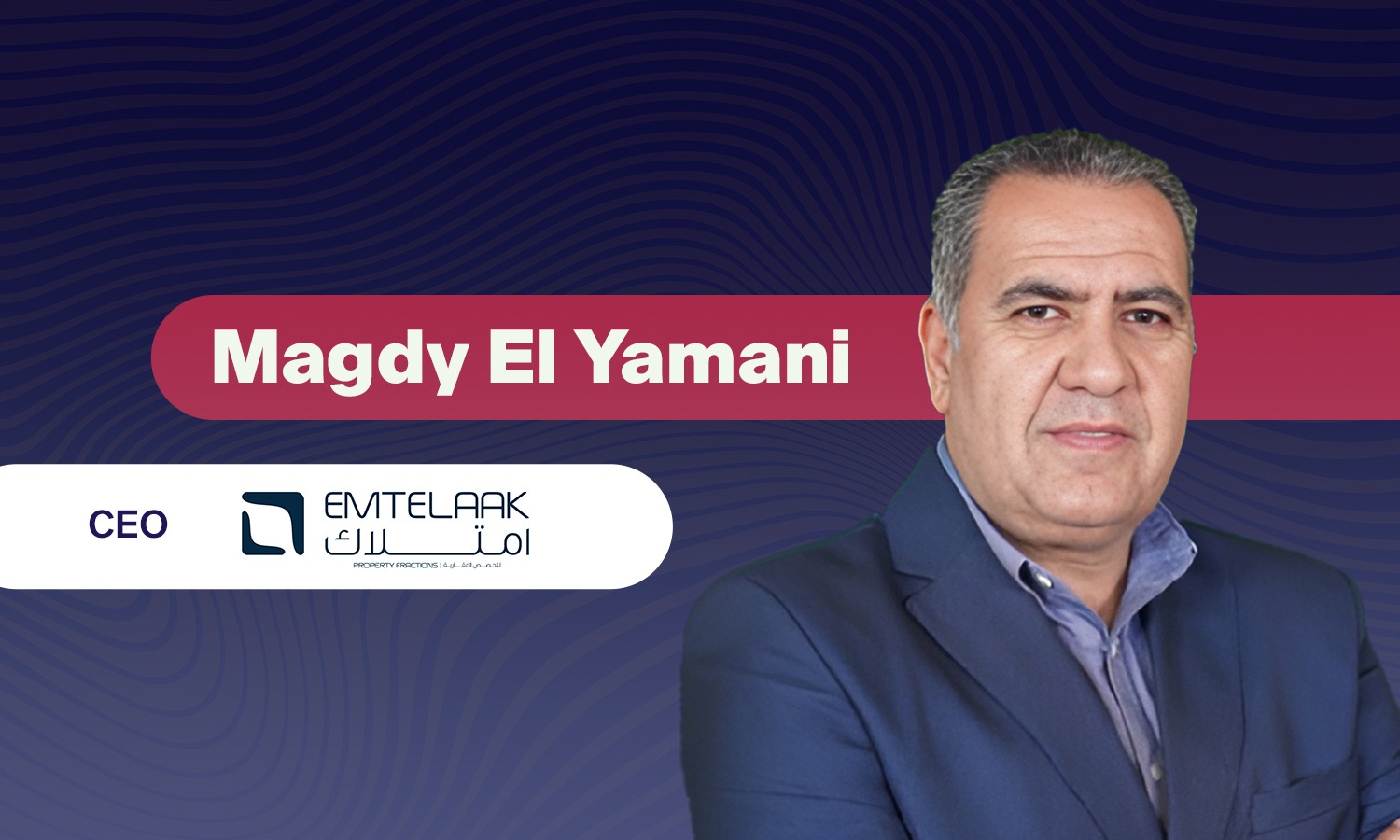Rebalancing Economy: Egypt’s Shift Toward Private Sector-Led Growth
Updated 7/27/2025 9:00:00 AM
In recent years, Egypt has embarked on a transformative journey aimed at rebalancing its economic landscape. A cornerstone of this ambitious endeavor is the strategic imperative to expand the role of the private sector significantly while reducing the state's pervasive presence in various economic activities. This shift is not merely an ideological preference; it is a pragmatic response to pressing economic realities and a forward-looking vision for sustainable growth.
Private Sector Dominance: Why Imperative Now?
For years, state-owned enterprises (SOEs) operating across numerous sectors have created an uneven playing field for private businesses. While the government has recently taken steps to level the competition for all firms, private enterprises frequently face challenges. These challenges are mainly in securing financing, largely due to banks' overwhelming preference for lending to the government. This is according to 2024 economic surveys on Egypt by the Organization for Economic Co-operation and Development (OECD).
In this regard, Ahmed Fawzy Hussein, a PhD holder and an assistant professor of economics, tells Arab finance: “The historical entrenchment of the state within the Egyptian economy has engendered several structural inefficiencies. Chief among them is the crowding-out effect, where public sector dominance in key sectors has marginalized private initiatives, stifled competition, and impeded productivity growth.”
“This has often led to a misallocation of resources, where investment decisions were driven by political or social imperatives rather than economic rationality. Furthermore, SOEs frequently operated under soft budget constraints, enjoying implicit state guarantees that discouraged efficiency and innovation. The cumulative effect has been a distortion of market dynamics, reduced foreign investor confidence, and an underdeveloped entrepreneurial ecosystem,” Hussein added.
However, the Egyptian government is actively working to expand the role of the private sector in the national economy. Egypt has cultivated robust relationships with international institutions and development partners, strategically leveraging these alliances to channel development finance, particularly towards the private sector. This concerted effort, coupled with ongoing economic and structural reform measures, has yielded a significant increase in financing volumes.
By the end of 2024, financing for private sector businesses reached approximately $4.2 billion, notably surpassing government financing for the first time, as revealed by the Ministry of Planning, Economic Development, and International Cooperation last June.
With the efforts exerted, there are promising sectors for private investments in Egypt. Ahmed Ghaly, a trade economist, tells Arab Finance: “There are several high-potential sectors that are aligned with both Egypt’s economic priorities and the broader regional and global investment landscape. Energy, especially renewables like solar and wind, stands out as a priority area. Logistics and transportation also offer significant opportunities.”
Other promising sectors include fintech and manufacturing, while sectors with less obvious opportunities include healthcare services, pharmaceuticals, and education, especially EdTech, Ghaly highlights.
He adds, "Water desalination, renewable infrastructure services, and circular economy sectors are also emerging as strategic areas where the private sector can play a leading role, especially as Egypt intensifies its focus on sustainability and climate resilience."
The State Ownership Policy Document: A Blueprint for Change
In December 2022, Egypt finalized and issued the State Ownership Policy Document. This document outlines the government's approach to SOEs and aims to increase private sector participation in the Egyptian economy.
“The State Ownership Policy Document is a landmark in Egypt’s economic policymaking. It is the first time the government has clearly defined the sectors in which it intends to exit, reduce its role, or retain a strategic presence,” according to Ghaly.
“By publicly committing to increase private sector participation in total investment to 65% within a few years, the document sends a strong message to both local and international investors that Egypt is serious about rebalancing its economic structure,” he says.
To meet the aspirations of Egyptians, the State Ownership Policy Document seeks to elevate economic growth rates by boosting investment rates to between 25% and 30%. This is projected to increase the economic growth rate to a range of 7% to 9%, thereby generating sufficient job opportunities to reduce unemployment rates.
Ghaly adds, “The document outlines a three-tier approach: full exit, partial presence, and strategic retention. It identifies over 60 sectors and subsectors where the state’s role will change.”
The State Ownership Policy Document further aims to empower the Egyptian private sector and diversify its opportunities across all economic activities. This is crucial for significantly increasing its contribution to the gross domestic product (GDP), investments, employment, exports, and government revenues.
Moreover, the document also aims to focus government investment in asset ownership on key, state-confined sectors, particularly those the private sector is hesitant to enter. Developing these strategic sectors will directly enhance the overall business environment for private enterprises.
Furthermore, the document seeks to improve the governance of the state's economic presence by establishing clear criteria for government involvement. This signifies a shift from direct institutional management to a focus on managing state capital, achieved by defining clear mechanisms for the state's exit from both the management and ownership of its assets.
Although the document aims to achieve competitive neutrality, it might not be the only means. Hussein explains, “Competitive neutrality is indeed a cornerstone for ensuring a balanced economic environment where private enterprises can compete fairly with SOEs. Achieving this in Egypt requires a comprehensive regulatory overhaul, including transparent governance frameworks for SOEs, the elimination of preferential access to finance and land, and the imposition of uniform taxation and compliance standards. Equally important is the reinforcement of independent regulatory bodies to ensure impartial oversight across sectors.”
“While the State Ownership Policy Document signals a commendable policy direction, confidence in its effective implementation hinges on political will, institutional capacity, and the establishment of clear timelines with measurable benchmarks. Without these, reforms risk being superficial or selectively applied,” he adds.
Meanwhile, Ghaly explains, “The document’s clarity is welcome. However, the key challenge now is operationalizing this policy. Investors will need to see concrete timelines, clear criteria for public-private partnerships (PPPs), and governance reforms in how state-owned enterprises are managed and divested. Transparency in asset valuation, open bidding processes, and consistency in messaging will be critical to building trust.”
Sustainability of Private Sector-Led Growth
Egypt’s efforts to empower the private sector and ensure its sustainable growth do not stand only at the State Ownership Policy Document. “Egyptian government has undertaken several initiatives beyond the document to attract private and foreign direct investment (FDI). Notable among these are the new Investment Law No. 72 of 2017, which provides a range of fiscal and non-fiscal incentives, particularly in underdeveloped regions, as well as guarantees against nationalization and arbitrary decisions.”
“Additionally, the push towards the Golden License system aims to streamline licensing procedures for strategic investments, reducing bureaucratic hurdles significantly. Furthermore, ongoing efforts to liberalize the exchange rate and enhance financial inclusion through digital transformation are pivotal in restoring investor confidence,” according to Hussein.
With efforts to boost private sector contributions in Egypt, investments are starting to see good results. During the third quarter of FY2024/2025, private investment, at constant prices, surged by 24.2% year-on-year (YoY), marking the third consecutive quarter it outpaced public investment, constituting 62.8% of total implemented investments (excluding inventory).
However, this growth was insufficient to counteract the substantial 45.6% YoY contraction in public investment (at constant prices). Consequently, the overall contribution of investment to GDP growth was negative, diminishing the aggregate growth rate by approximately 2.44 percentage points, as revealed by the Ministry of Planning, Economic Development, and International Cooperation in June 2025.
Yet, more needs to be done to ensure better results in the future. Hussein points out, “The sustainability of the incentives [taken by the government] depends critically on addressing underlying issues of regulatory predictability, judicial efficiency, and macroeconomic stability.”
Ghaly notes, “Global investors are closely watching Egypt, but to attract long-term investment, reforms must shift from plans to credible, actionable policies. Strengthening the private sector is no longer just an economic choice; it is a necessity for resilience, innovation, and job creation.”
Egypt's economic trajectory is at a pivotal point, marked by a determined shift towards empowering the private sector as the primary engine of growth and development. The historical dominance of state-owned enterprises has created structural inefficiencies, stifled competition, and led to resource misallocation.
Recognizing these challenges, the government has strategically committed to fostering a more level playing field, attracting investment, and driving sustainable job creation. The path ahead requires sustained effort, but the strategic direction is clear: a dynamic private sector is indispensable for Egypt's long-term economic aspirations.
By Sarah Samir
Related News









